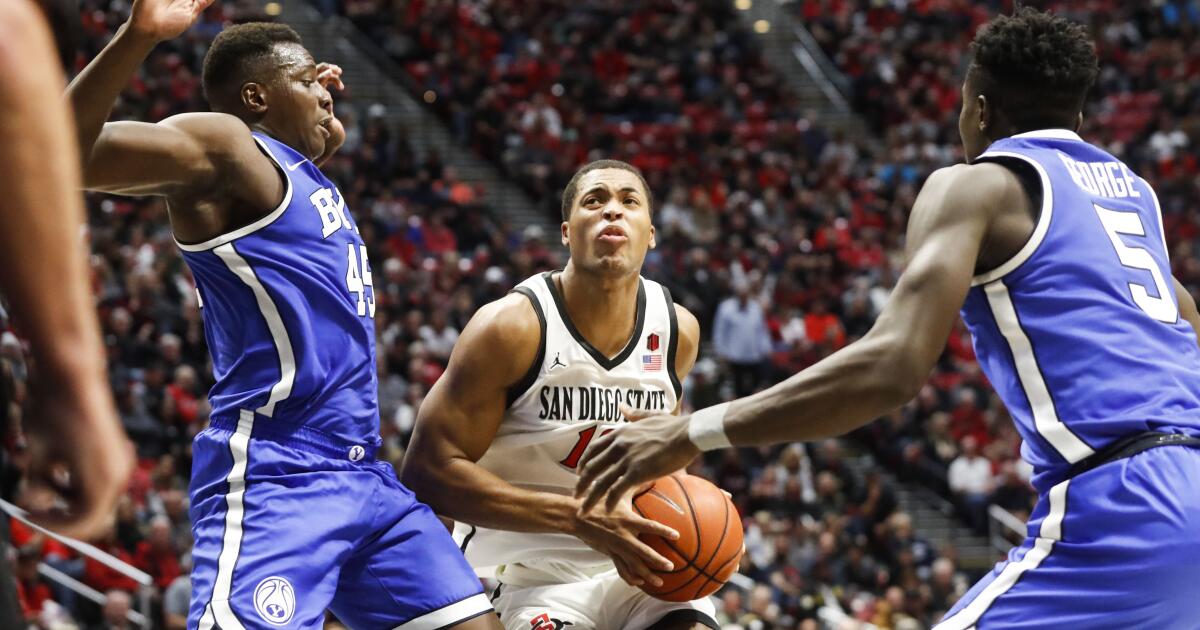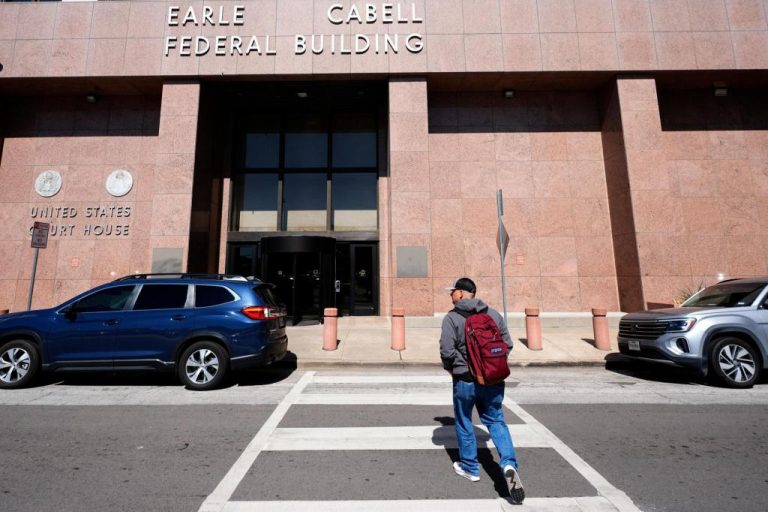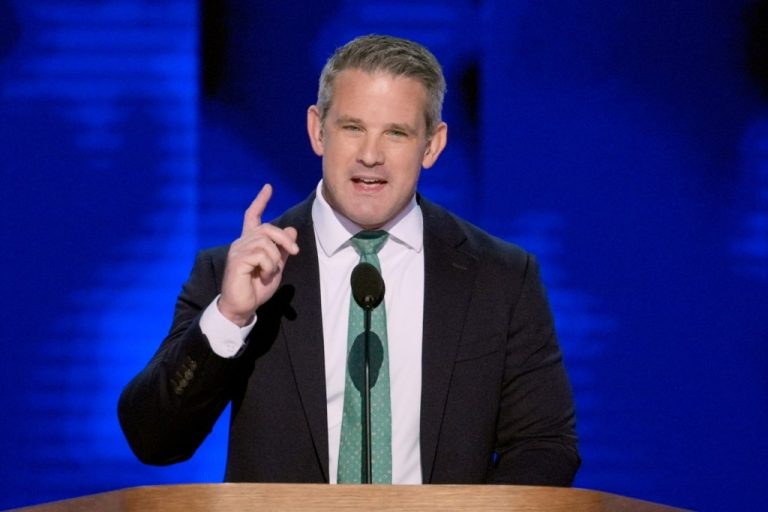

San Diego State and BYU will play men’s basketball for the sixth straight year on Friday night in what both sides expect to be a tight, taut affair decided in the final minutes, maybe seconds.
Enjoy the game. Enjoy the energy, the noise, the closest thing the Aztecs have to a bitter rival.
Because it might be a while before they do it again. The two-year series ends Friday at the Marriott Center, and they haven’t renewed it.
At this time two and four years ago, both sides had essentially committed to play again in each other’s buildings. They’re currently talking, just not committing.
“I must need my head examined, because we’re going to a place where we’re 4-30,” SDSU coach Brian Dutcher said. “But I like the game, I like the rivalry. It’s a good series because both teams are winning games. … It’s not one-sided in any way, shape or form. In that regard, I think it’s good for both teams.”
BYU coach Mark Pope, in his fifth season in Provo, concurs.
“I love the game so much, which is weird for me to say: We’re 2-2,” Pope said earlier this week. “Every year this turns into an epic battle. It really turns into a test of your manhood. I love it. Our guys love it. It’s a street fight from the tip and it turns into a great basketball game and it’s a fun series. I can’t wait for it.”
So what’s the problem?
Times change. Conferences change. Schedules change. Circumstances change. Needs change. Logistics change.
Since they last inked a contract renewing the two-year series in 2021, BYU has joined the Big 12 from the West Coast Conference and SDSU is about to lose its years-long battle to prevent a 20-game Mountain West schedule that limits nonconference opportunities.
The Big 12 was already college basketball’s premier conference before it added Houston, Cincinnati, Central Florida and BYU — all programs that have had recent success. Ten conference teams are currently ranked in the top 50 of the Kenpom .com metric, and the other four are in the top 80.
BYU, which has averaged 22 wins in Pope’s four seasons, was picked to finish 13th in the preseason media poll.
The Big 12 conference schedule is 18 games this season, up two from what BYU played in the WCC. Next season, the Big 12 is going to 20.
There’s one stretch in February where the Cougars play Baylor, Kansas State, Kansas, TCU and Iowa State — all teams ranked in Kenpom’s top 33, back to back to back to back to back. Why load up in November and December as well? Common sense says you feast on cupcakes, then go .500 in the Big 12 to reach 20 wins.
“Once they hit conference, it’s murderer’s row all the way through,” Dutcher said. “They don’t need as many quality, nonconference games. … I’ve talked to Coach Pope about continuing it. We’ll see. Maybe it’s a game they feel is of value to them still, even though they have a tough Big 12 schedule.”
The Mountain West has an 18-game schedule despite having 11 basketball schools, meaning you skip one opponent at home and one on the road. For years, conference members have pushed for 20, partly to bring balance but mostly because it’s two fewer nonconference games they have to find.
It has been a contentious issue for the Aztecs, going back to Steve Fisher’s tenure.
Their argument: Fewer conference games provide more flexibility in scheduling more quality, resume-building games before January that enhance the conference’s metrics and, by extension, its chances to receiving multiple at-large berths into the NCAA Tournament. Going to 20 leaves 10 or 11 nonconference games, which is down to seven or eight when you subtract a tournament, then three or four when you consider “buy” games to give season ticket holders a sufficient number of home dates.
“The more conference games people play,” Dutcher said, “there’s less room for these out of conference battles.”
The counterargument: Most Mountain West schools don’t have the allure of SDSU or UNLV, able to attract high-profile opposition because of their pedigree and location. And six are above 4,500 feet, making it harder to get nonconference home games against teams that have a choice whether to burn the lungs of their players (and likely lose).
“It’s better for San Diego State if there’s not a 20-game conference schedule,” Dutcher said, “because we’re one of the few schools in the league with the ability to schedule really quality outside games. And it’s probably better for the rest of the Mountain West to play a 20-game conference schedule.”
Fisher resisted for years through savvy back-room lobbying. Dutcher and Athletic Director John David Wicker have carried the torch since.
That, multiple sources said, is expected to end at the Mountain West’s spring meetings and a 20-game schedule implemented for 2024-25.
“I mean, how many years can we fight it?” Dutcher said. “We’ve been fighting it forever. If we vote on 18 or 20, I’ll continue to vote for 18. But I don’t think we’re winning this time.”
Dutcher said they’ll continue to schedule aggressively in the nonconference, even with fewer available dates. Maybe they can salvage the BYU series (SDSU has even offered to play at the Marriott Center again next year). Maybe they take a hiatus while the Cougars get their footing in the Big 12.
“I hear it’s loud,” USC transfer Reese Waters said of his first trip to one of college basketball’s most intimidating venues. “I hear it’s hard to play in there. … I look at every game as equal. I don’t try to look at any game as bigger than any other game. But I’m really excited to play on Friday, I’ll say that.”





